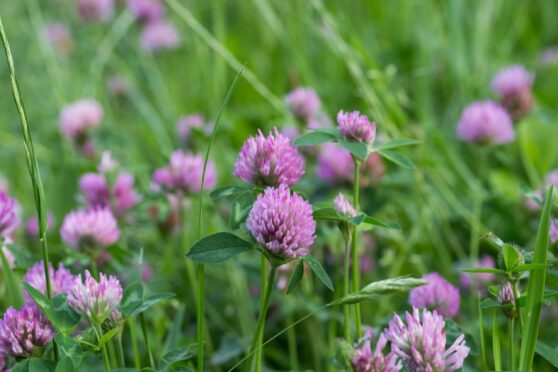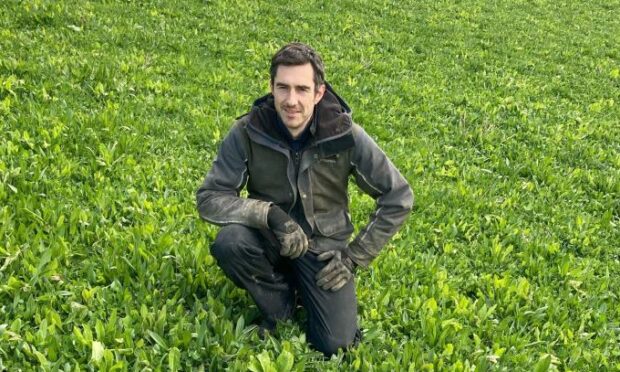Farmers and crofters can safely graze sheep on pastures containing red clover without impacting their fertility, new research has found.
A farmer-led study has disproven decades-long industry concerns about the impact of red clover on sheep fertility.
The study involved four farmers working in conjunction with agricultural consultancy ADAS and Innovative Farmers – an initiative to brings farmers, researchers and funders together.
The farmers, who were based in the West Midlands and Powys in Wales, studied the impact of grazing ewes on herbal leys containing red clover in a bid to challenge and update 50-year-old research from New Zealand and Australia.
The older research found fertility can be impacted when ewes are grazed exclusively on red clover.
As part of the new study, farmers grazed their sheep on herbal leys with an average of 17.6% red clover – a move which resulted in positive, rather than negative, impacts on the sheep involved.
The study involved selecting a group of ewes for the trial and splitting them into two sub-groups – one was grazed on grass leys with no red clover, and the other on the leys with red clover included.
On average the ewes grazed on the grass without clover scanned at 170%, while the ewes mated on swards containing red clover scanned at 181%.
One of the farmers involved in the study – Gillian Pearce who is also a senior consultant at ADAS, said: “It’s clear to see that there are no negative results from grazing ewes on red clover, and that farmers can have confidence in this practice.
“The ewes mated on the red clover actually scanned higher – this was unexpected because we were setting out to prove no negative effect and what we ended up with was a positive effect.”
She said she hoped the results from the study would encourage more farmers to make use of red clover grass mixtures, which also fix nitrogen in soils.
Powys farmer Marc Jones, who took part in the study, has been grazing ewes on leys with red clover for the past seven years.
He said: “We started off with just 20 acres using red clover and have gradually increased it over the years, which has helped us to decrease our dependency on nitrogen.
“Without the legumes we would be looking at paying huge costs this year – we would have gone from £35,000 last year to £90,000 this year.”
Innovative Farmers manager, Rebecca Swinn, praised the farmers involved in the study and said: “They challenge existing research which didn’t apply to the majority of real-life farming situations, and I hope the results encourage more farm businesses to integrate red clover and reap its many benefits.”

